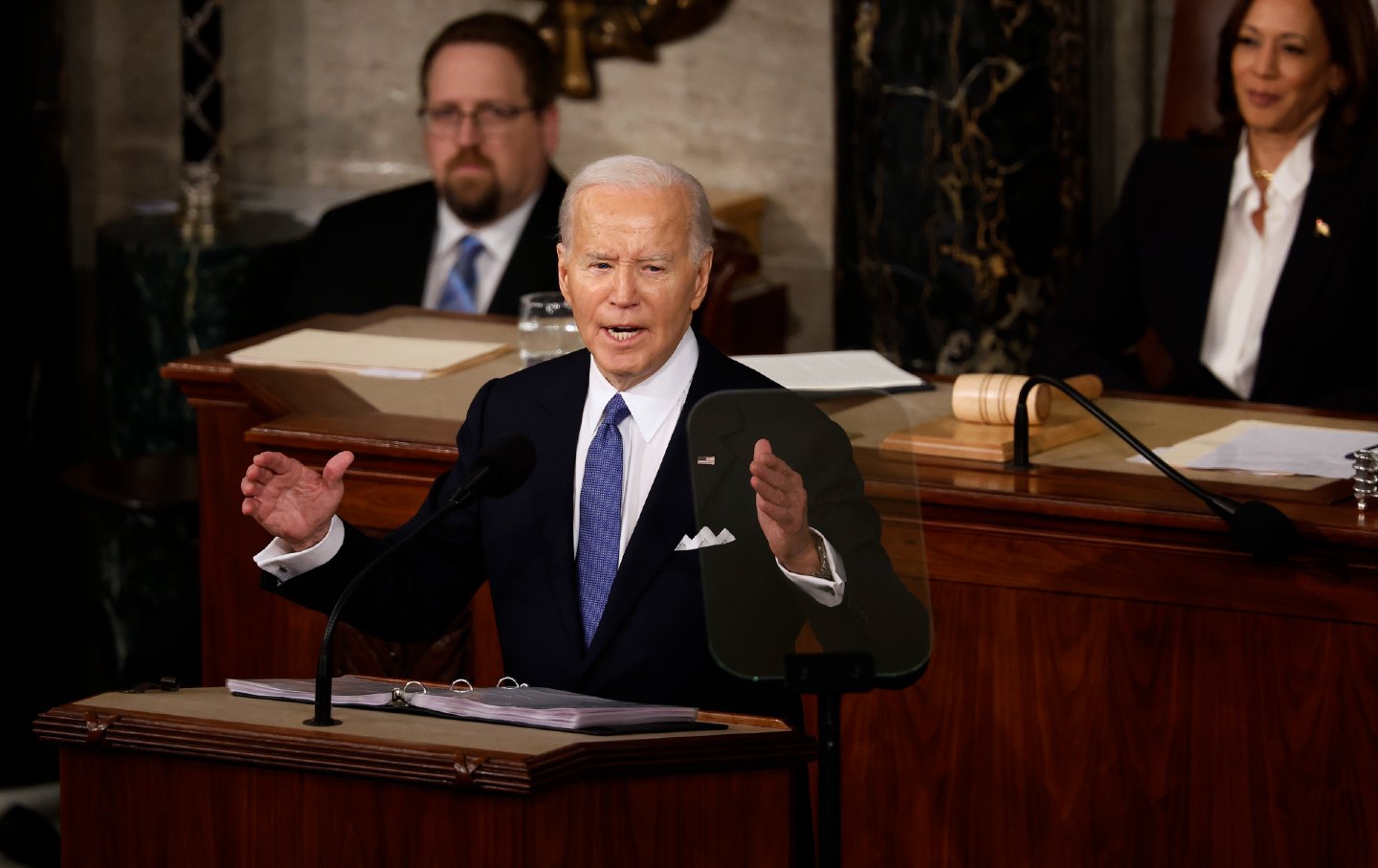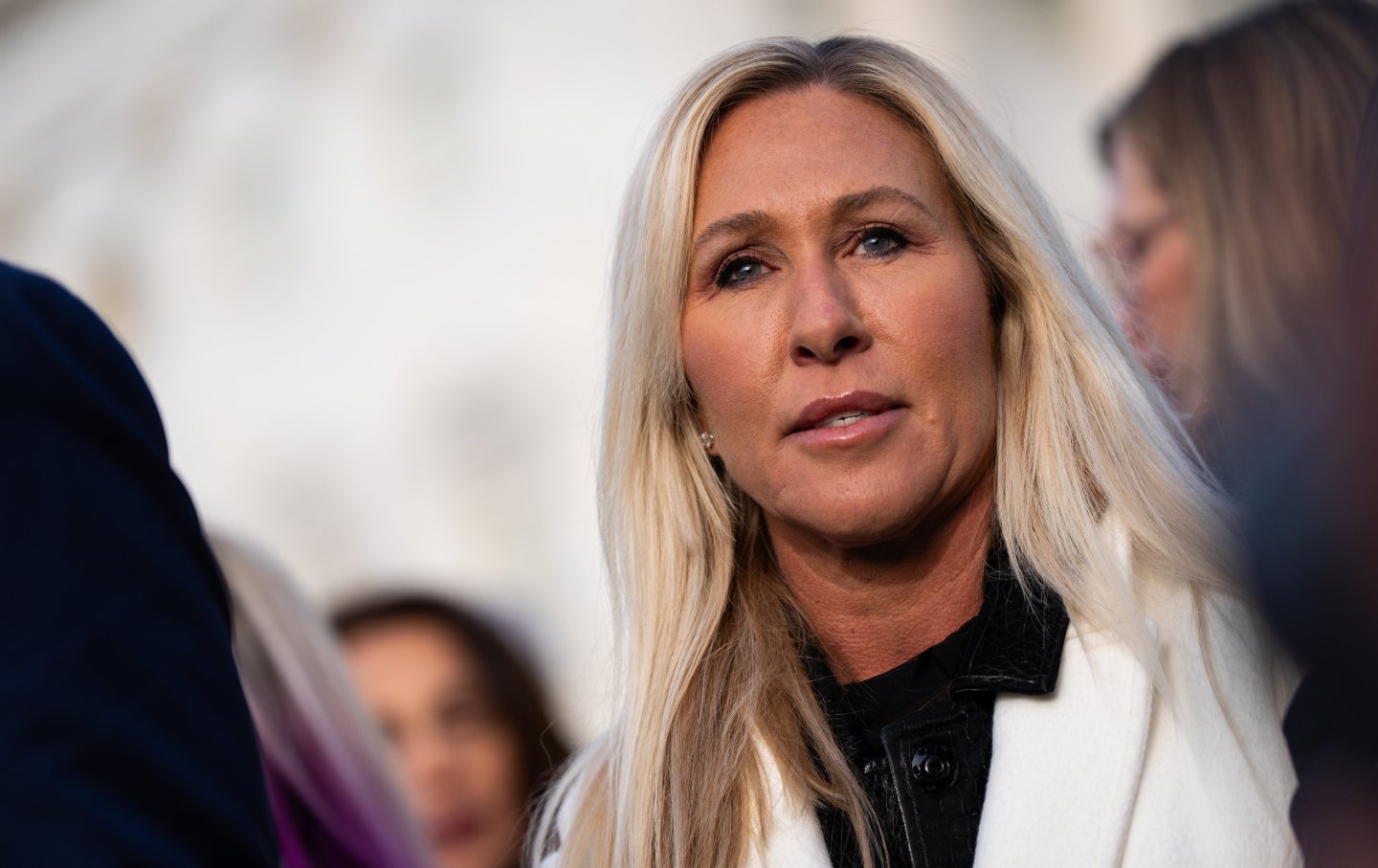Keep Talking About President Biden’s Age
Why he should exploit, for political purposes, his wisdom and experience.

In his State of the Union address last week, President Biden pushed for a plan to curb sky-high executive compensation, announced more humanitarian aid for Gaza, and mentioned artificial intelligence for the first time ever in the annual speech. But the substance of Biden’s address wasn’t what got people’s attention. It was the fact that he was able to successfully deliver it, despite persistent concerns over his age.
Of course, his advocates were pleased with his energetic performance. As Representative Jerry Nadler said to the president immediately afterward, “Nobody’s gonna talk about cognitive impairment now!” (Biden’s response—“I kinda wish sometimes I was cognitively impaired”—was quick enough to underscore Nadler’s point.)
Perhaps even more telling was the response from the right. Unable to justify another round of “Sleepy Joe” accusations, President Trump accused Biden of being hopped up on drugs. Fox News went for the same line of attack.
You don’t claim your opponent is juicing if you’re winning.
This all comes after months—years, even—of increasingly vocal concerns about Biden’s fitness for the job. As of early March, 73 percent of voters thought Biden was “just too old” to be effective—including 61 percent of people who supported him in 2020. And while Biden may have benefited from the soft bigotry of low expectations—“Can you believe the president spoke for an hour straight?”—his invigorated remarks still constituted a desperately-needed win.
Now that Biden has proven himself, some will say we should stop talking about his age. But rather than cease the conversation entirely, we finally have the opportunity to change it.
The reductive discourse about whether Biden is too old dismisses the valuable leadership qualities that can come from age: wisdom, experience, and perspective. And it diminishes the invaluable contributions that Americans over 80 are making—to politics, to culture, and to public life.
We have a stereotypical view of our presidents, and our leaders in general, as spry and strong, Kennedy-in-Camelot types. But the qualities that are actually best suited to leadership are subtler—and often present themselves more frequently in the elderly.
For one, older people panic less: Because the nerve cells that cause our “fight-or-flight” reactions fade over time, later-in-life leaders tend to be less emotionally volatile. And in a study that compared older leaders to their younger counterparts, the elder ones were rated better at building trust, nurturing their teammates, and bringing clarity to complicated situations.
These qualities ring true for Biden. Yes, he’s old. Anyone can see that. He’s tripped up over words and names, stairs and sandbags. But he also has empathy for Americans’ struggles, developed over a lifetime of hardship. And while his administration’s foreign policy may reflect an outdated Washington consensus, his domestic policy agenda is (mostly) compassionate and wise. He pushes the wealthy to pay their fair share in order to grow the middle class. He vocally supports organized labor, and became the first president in history to walk a picket line.
This is the message Democrats can send on Biden’s age. Not that he isn’t aging, but that his age is working in his favor. To amend the famous Ronald Reagan quip, Biden should exploit, for political purposes, his wisdom and experience.
After all, Americans embrace many elderly leaders—and we’re better off for it. Gloria Steinem, who turns 90 this month, continues to organize for women’s rights—and her endorsement means more than ever. Bernie Sanders, 82, speaks with a cogency and moral clarity that surpasses the vast majority of his younger congressional colleagues. Howard Hiatt, who passed away last week at the age of 98, transformed health policy well into his 80s. At 94, former president Jimmy Carter offered to conduct a diplomatic visit to North Korea on behalf of the Trump administration. Former secretary of defense William J. Perry, one of the world’s most knowledgeable experts on nuclear weapons, continues to sound the alarm at 96.
Then there are the artists who offer their most inspirational works in the final acts of their lives. Toni Morrison published beautiful, political books and essays throughout her 80s. Eighty-two-year-old Bob Dylan launched a world tour in 2021—and not only is he still going, he’s teaming up with 90-year-old Willie Nelson for 25 shows this summer. Martin Scorsese, 81, just became the most-nominated living director at the Academy Awards for a film that presented all kinds of challenges to his creative sensibilities and his physical endurance.
Popular
“swipe left below to view more authors”Swipe →So no, it’s not that age is just a number. It’s that great leaders—and great Americans of all stripes—use their age to their advantage.
To be sure, it can be uncomfortable to watch a leader struggle through a speech, or stumble over a step. But this is a socialized reaction, and not an inherently useful one. Our leaders should be all kinds of people, with all kinds of abilities. Older people may not fit our traditional vision of what a leader should be—and maybe, just maybe, that’s a good thing.
More from The Nation

Are Most Americans Even Paying Attention? Are Most Americans Even Paying Attention?
In this week’s Elie v. U.S., The Nation’s justice correspondent digs into the latest legal news, Trump news, and Nuzzi news—along with a look at how few people actually follow sai...

The Revolt of the Republican Women The Revolt of the Republican Women
Speaker Mike Johnson’s sexism is fueling an unexpected uprising within the GOP caucus.

Look Up! Look Up!
Our addiction to cell phones is distracting from the world around us.

Can These Politician Activists Make it to Congress? Can These Politician Activists Make it to Congress?
Cori Bush and Kat Abughazaleh discuss how to win in politics without selling out.




